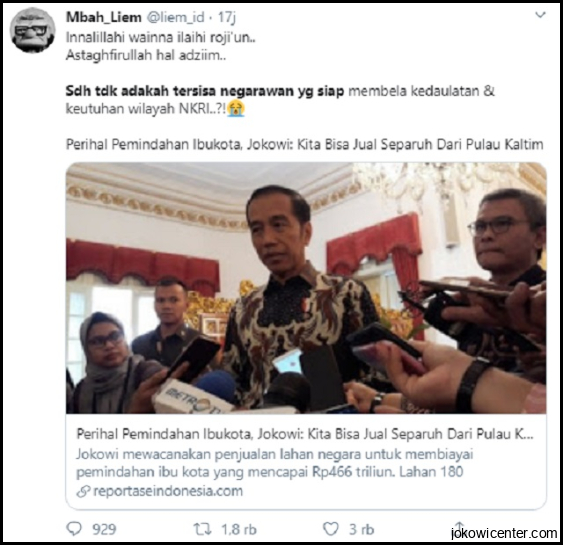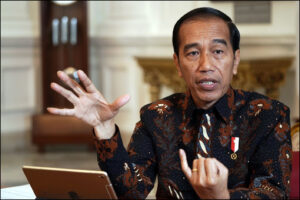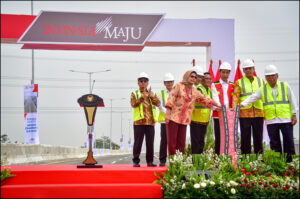Indonesia, a nation blessed with natural beauty and rich biodiversity, is facing a crucial issue that has sparked widespread concern among its citizens. The topic of “Jokowi Jangan Jual Pulau Lagi” has ignited debates and protests across the archipelago, with many calling for a halt to the selling of islands for development purposes. This contentious issue raises questions about environmental conservation, indigenous rights, and sustainable development in the country.
The Origins of “Jokowi Jangan Jual Pulau Lagi”
The slogan “Jokowi Jangan Jual Pulau Lagi” translates to “Jokowi, Don’t Sell Islands Again.” It stems from the perceived trend of Indonesian President Joko Widodo’s administration selling off islands to private investors for various projects. These projects often include luxury resorts, industrial facilities, or other forms of commercial development. The practice has drawn criticism from environmental activists, indigenous groups, and concerned individuals who fear the loss of natural habitats and cultural heritage associated with these islands.
Environmental Implications
The sale of islands for commercial purposes can have detrimental effects on the environment. Ecosystems unique to these islands may be destroyed or severely impacted by infrastructure development, deforestation, pollution, and other activities associated with commercial projects. Endangered species that call these islands home could face extinction due to habitat destruction and human interference.
Indigenous Rights and Cultural Heritage
Many of the islands being sold off by the government are home to indigenous communities with deep cultural connections to their land. The displacement of these communities in favor of commercial interests not only violates their rights but also threatens the preservation of ancient traditions and knowledge passed down through generations. The loss of indigenous territories can lead to social unrest and conflicts over land ownership and resource exploitation.
Economic Development vs. Conservation
The debate surrounding “Jokowi Jangan Jual Pulau Lagi” highlights a fundamental tension between economic development aspirations and environmental conservation efforts in Indonesia. While infrastructure projects on these islands may promise economic growth and job opportunities in the short term, they come at a significant cost to biodiversity conservation and sustainable resource management in the long run. Balancing these competing interests is a complex challenge that requires careful consideration of social, economic, and environmental factors.
The Call for Policy Reform
As public awareness grows about the implications of selling off islands for development purposes, there is a mounting pressure on President Joko Widodo’s government to reevaluate its policies regarding land tenure rights, environmental protection regulations, and indigenous community participation in decision-making processes related to island development projects. Advocates for conservation are urging policymakers to prioritize sustainable practices that respect nature’s intrinsic value as well as the cultural heritage of local communities.
Citizen Movements and Grassroots Activism
Grassroots movements such as “Jokowi Jangan Jual Pulau Lagi” are mobilizing citizens across Indonesia to voice their concerns about unsustainable land use practices that threaten the country’s natural ecosystems and cultural diversity. Through protests, social media campaigns, petitions, and community outreach initiatives,
citizens are demanding greater transparency,
accountability,
and participation in shaping policies that affect their lands.
The power lies with grassroots activism in holding decision-makers accountable for their actions
and advocating for more inclusive governance structures that prioritize environmental stewardship
and social justice.
By amplifying local voices,
these movements seek to influence policy reforms
that safeguard Indonesia’s ecological heritage
for future generations.
The Future of Island Conservation
In conclusion,
the issue encapsulated by “Jokowi
Jangan Jual Pulau Lagi”
is emblematic
of broader challenges facing Indonesia
in balancing economic growth imperatives
with sustainable development goals.
The preservation
of its irreplaceable natural resources
and cultural heritage
requires a holistic approach
that integrates diverse perspectives
and prioritizes ethical considerations
over short-term gains.
By fostering dialogue,
engagement,
and collaboration among stakeholders,
Indonesia can chart a more balanced path forward
that upholds its commitment
to environmental sustainability,
social equity,
and intergenerational justice.
As public discourse continues
to shape policy discussions,
it is imperative
for all actors involved—be they government officials,
business leaders,
civil society organizations,
or everyday citizens—to act responsibly
in safeguarding Indonesia’s precious islands
for present
and future generations.
May this collective effort lead towards
a more harmonious coexistence
between humanity
and nature
within
Indonesia’s
breathtaking island landscapes.






